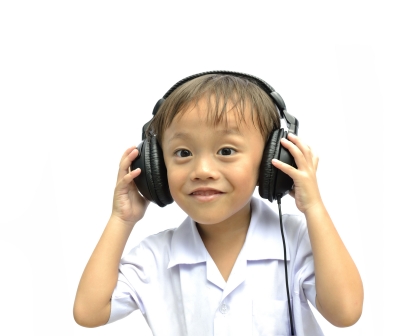
Summer Safety for Students with ADHD: Tips to Reduce Temptation
May 12, 2014
Reading: Just Do It! Experiencing Books in Non-traditional Ways
May 19, 2014





In a recent article posted by The Yale Center for Dyslexia and Creativity, Kyle Redford, YCDC Education Editor, gives educators the charge of getting students reading. What makes something that should be obvious, revolutionary?
Redford makes the argument that reading DOES NOT need to be done exclusively with the eyes, but can also be done using the ears. He contends that hearing books while following along builds vocabulary, and exposes readers to words and ideas that they may be able to understand, but not decode, or read fluently.
Children who struggle with the act of reading, due to a learning disability or other learning issues, “often encounter a gap between their reading level and their intellectual level,” said Redford. “This can turn them off of reading altogether. They don’t want to read ‘baby books.’ Some handle this by faking engagement with thick sophisticated titles, while others decide that they don’t like to read at all and avoid it completely. Both can be disastrous responses. Fortunately, there are other means for building word power for these children,”
Unfortunately, even in 2014, after research has clearly demonstrated the need for alternate pathways to gather and gain access to the “world of words,” many still believe using the ears is somehow cheating, or a crutch that will do more harm than good, both of which are simply untrue. This is not to suggest that a second grader, struggling to break the code should be only listening to books, but that starting as early as possible, the option is exercised, while alternate research-based methods are used to teach the child to decode and read more fluently, in order to improve comprehension.
Is reading a difficult and laborious task for your child? Does she prefer to be engaged by listening and investigating rather than sitting down to read a book? Do you feel that the act of decoding words gets in the way of your child having rich language experiences through books?

Stay tuned.... Our next blog focuses on ways teachers and parents can provide options to children who struggle with decoding and fluent reading.
Blogger Barbara Hunter, MEd, shares her expertise in the use of technology to support learning. If you have questions, please contact Barbara at .
Image courtesy of Ambro at FreeDigitalPhotos.net